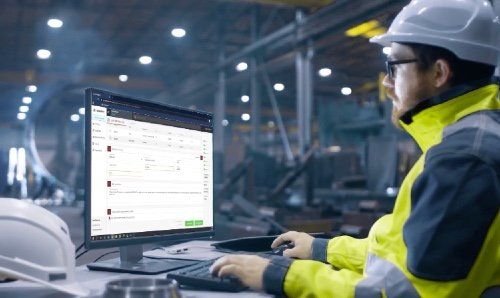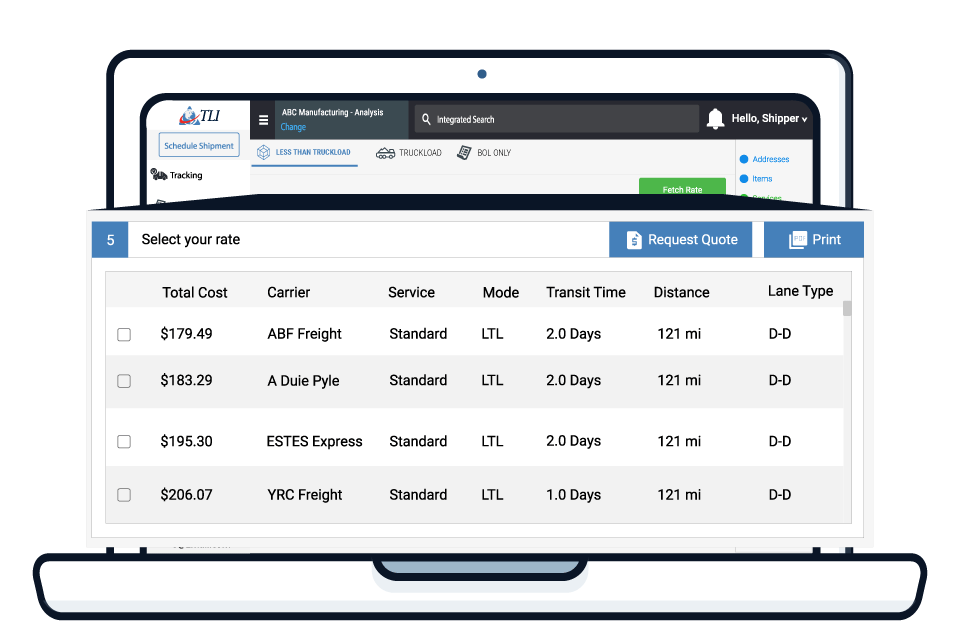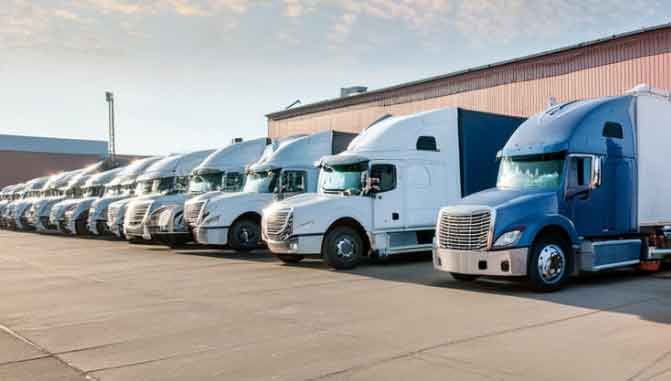Freight All Kinds (FAK) in the LTL Market
Commodity FAK
The Less Than Truckload (LTL) market offers a wide array of shipping options to accommodate various freight types and sizes. One such option is Freight All Kinds (FAK), which simplifies the complex process of shipping different commodities with varying classifications. This article aims to explain what FAK is in the LTL market and shed light on how Third-Party Logistics providers can source FAKs for shippers in custom carrier Request for Proposal (RFP) and Request for Quote (RFQ) processes with LTL carriers.

Freight All Kinds (FAK):
In the LTL market, freight is typically classified based on specific characteristics such as density, handling requirements, and packaging. These classifications help determine the shipping rates and services provided by carriers. However, managing multiple classifications for diverse freight can be challenging for shippers who transport various commodities.
FAK simplifies this process by grouping multiple commodities under a single classification. It allows shippers to consolidate different types of freight, regardless of their individual classifications, into one shipment with a unified pricing structure. The FAK concept streamlines the administrative burden associated with tracking and managing various freight classes.
Benefits of FAK in the LTL Market:
- Pricing Simplification: FAK eliminates the need for shippers to calculate and manage individual freight class rates for each commodity being routed. This is especially useful if different commodities are being consolidated on the same pallet. Instead, a single rate is applied to the entire shipment, which results in pricing clarity and simplicity.
- Flexibility and Efficiency: By using FAK, shippers gain more flexibility in consolidating various commodities in a single shipment, reducing the number of individual shipments required. This consolidation increases efficiency, reduces costs, and improves overall supply chain management.
- Cost Savings: FAK often provides cost savings for shippers. With a unified pricing structure, the rates for the FAK shipment are often more competitive than those for individual classifications. This results in potential cost reductions and improved budget management. The pricing structure also prevents NMFC reclassifications with the carriers.

Sourcing Commodity FAKs
Third-Party Logistics providers (3PLs) play a crucial role in helping shippers navigate the complexities of the LTL market. TLIs have the expertise and industry knowledge to assist shippers in leveraging FAK options during the carrier selection process.
Commodity FAK
Here's how TLIs can source FAKs for shippers in custom carrier RFPs and RFQs:
- Comprehensive Freight Analysis: TLIs thoroughly analyze a shipper's freight profile, considering the nature of the commodities, their classifications, and shipping requirements. Based on this analysis, TLIs can identify suitable FAK tier options.
- Customized RFP Development: TLIs create customized RFPs tailored to the shipper's specific needs. These RFPs highlight the inclusion of FAK as a requirement, ensuring that carriers interested in the shipper's business can provide FAK pricing and service options.
- Negotiating FAK Pricing: During the carrier selection process, TLIs negotiate with LTL carriers to obtain competitive FAK rates for the shipper. By leveraging their industry relationships and market insights, TLIs can secure favorable FAK pricing and service agreements.
- Managing RFQ Responses: TLIs evaluate carrier responses received through the RFQ process, paying close attention to carriers that can meet the shipper's FAK requirements. They compare rates, services, and network capabilities to ensure the selected carrier can effectively handle the FAK shipments.
- Continuous Monitoring and Optimization: After carrier selection, TLI adds the contracts into the TMS rating engine, making it possible for shippers to route freight on FAK contracts while remaining within their own ERP system through integration. TLIs then will monitor the FAK shipments, ensuring the agreed-upon rates and service levels are upheld. If a carrier makes a billing mistake, TLI's freight invoice audit program can dispute the charges on behalf of the shipper. TLI also provide ongoing analysis and optimization strategies to maximize the benefits of FAK for the ship

Commodity FAK
Cons of Implementing an FAK Program in LTL Shipping:
While Freight All Kinds (FAK) programs in the Less Than Truckload (LTL) shipping market offer numerous benefits, it is important to consider potential drawbacks that may arise when implementing such programs. Understanding the cons associated with FAK programs can help shippers make informed decisions. Here are some cons to consider:
- Limited Rate Transparency: FAK programs typically involve negotiated rates that are not publicly available. Shippers may find it challenging to compare FAK rates across carriers or evaluate whether the rates are competitive. This lack of transparency may limit a shipper's ability to make optimal pricing decisions and could potentially result in higher costs.
- Potential for Misclassification: FAK programs rely on grouping various commodities under a single classification. While this simplifies the pricing structure, there is a risk of misclassifying certain freight items. Misclassification can lead to incorrect pricing, disputes with carriers, and potential penalties or fines. Shippers must exercise caution and ensure accurate classification of their commodities within the FAK program.
- Limited Flexibility for Specialty or High-Risk Freight: FAK programs are designed to accommodate a wide range of commodities, but they may not be suitable for all types of freight. Specialty or high-risk items that require specific handling, temperature control, or additional security measures may not align well with the standardized FAK classification. Shippers dealing with such freight should carefully assess whether FAK programs can adequately meet their unique requirements.
- Potential Impact on Claims and Insurance: In FAK programs, various commodities with different value and risk levels are consolidated under a single classification. This consolidation can complicate the freight claims process in case of loss or damage. Insurance coverage may need to be carefully evaluated to ensure it adequately protects the value of the combined FAK shipment, considering the diverse commodities involved.
- Inconsistent Service Levels: FAK programs prioritize consolidation and cost efficiency. While this can lead to overall savings, it may come at the expense of service levels. Carriers may focus more on optimizing their network and load planning rather than providing individualized attention to specific commodities. Shippers with time-sensitive or high-priority freight should carefully assess whether FAK programs align with their service requirements.
- Limited Carrier Options: Not all LTL carriers may offer FAK programs or be equipped to handle the complexities associated with consolidating diverse commodities. Shippers may find their options limited when selecting carriers that can support FAK shipments. This limitation could impact competitive pricing and service availability, potentially reducing the benefits of FAK programs. TLI's rating portal provides contract comparison with the different LTL contract methodologies for users to have a seamless experience when comparing LTL freight quotes.
Commodity FAK Summary
While Freight All Kinds (FAK) programs in the LTL shipping market provide significant advantages, it is essential for shippers to consider the potential cons associated with their implementation. By evaluating the cons, shippers can make informed decisions regarding the suitability of FAK programs for their specific freight types, service requirements, and overall supply chain goals.
TLI Insights
Get the latest logistics insights and tips from TLI's award-winning team. Stay ahead in transportation planning.
Questions? Email us at marketing@shiptli.com



